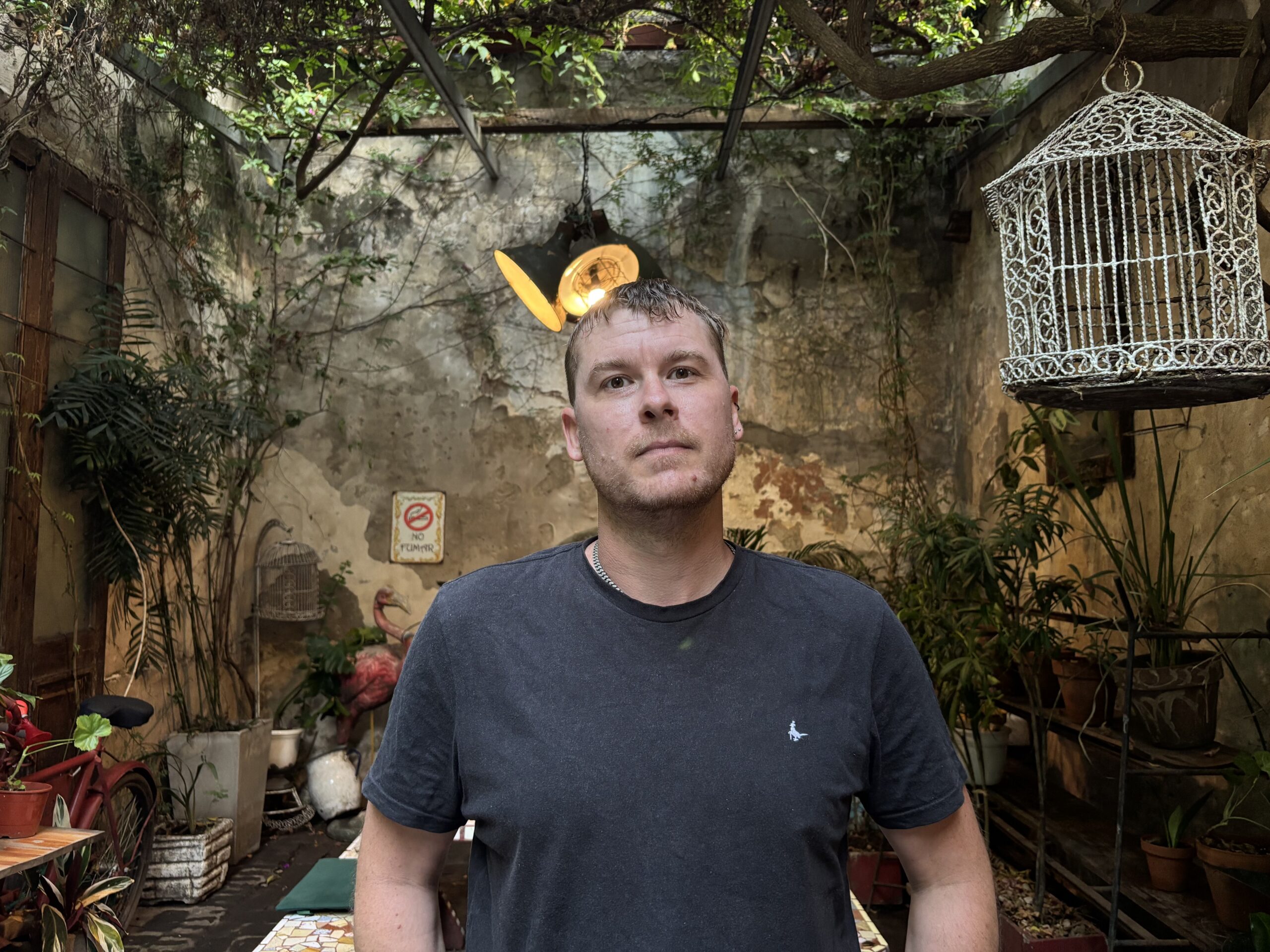England and Argentina don’t mix well. There’s the Islas de Malvinas/Falkland Islands ownership debate, and the notorious Hand of God goal Argentine football legend Diego Maradona scored to knock out England in the 1986 FIFA World Cup. The contentious history didn’t dissuade football journalist Daniel Edwards from looking for an internship in Buenos Aires after graduating from the University of Birmingham in 2009. After securing a six-month gig at the Argentina Independent, Edwards fell in love with the city and decided to look for ways to extend his stay. After a couple of odd jobs, he landed his first full-time professional journalism job as a South American football correspondent for Goal.com.
For the last 15 years, Edwards has covered the South American football scene as a full-time staffer for the Buenos Aires Herald and as a freelance writer for the Buenos Aires Times, Goal.com and The Guardian. He now works remotely for North Star Network overseeing online production on all the network’s websites. He sat down to chat about his life as an expat journalist in Argentina in the back patio of an espresso bar on a hot and humid Tuesday evening in Villa Crespo, where he lives with his partner and five-year-old son.
Q: You grew up in the U.K., which is known for its football (soccer) culture as well. What exactly drew you to sports journalism?
A: What immediately drew me to football was everything behind it — the stories of the fans going to games, chatting to this guy who’s been to every home game since 1975 and he’s always worn the same underpants, brought the same drum — all these stories. What I’ve always tried to do in my writing is uncover that culture, that sense of history, that sense of wonder, which I think is such an important part of Argentine football. I want to uncover that and give it to the world, to the fans back home in England and let them share those wonderful stories.
Q: What are the challenges of covering South American football?
A: Working so far from home was always going to be a big challenge. I speak Spanish and I write in Spanish, but I’m always going to be at a disadvantage if I want to work in the local market as a journalist. When I came here in 2009, I was with that first wave of people who could work far away from their homes, I’ve had times where work’s been hard to come by, but I’ve also been able to find good employment. I found my place in journalism but you do have to get out there. You have to be cold calling; you have to be looking for opportunities and knowing that playing on an away ground is always going to bring its unique challenges.
Q: What’s been our favorite story to cover as a South American football journalist?
A: Covering Argentina’s 2022 World Cup win was incredible. I covered it from here in Buenos Aires. Just seeing how the expectation built up from that awful start they had against Saudi Arabia to then beating Mexico. You could feel after that Mexican game — which was the second one — there were already people on the street celebrating. The atmosphere kept building up with every single game up to the final when it was this explosion. I had my son there as well — he was only three at the time — but we took him down to the celebrations, dancing in the streets.
Q: What have you learned from this job?
A: I wasn’t a particularly outgoing kid. Going out and chatting with strangers is something that I had to work on. Journalism is absolutely a great way to do that because it gets you out of your comfort zone. You’re talking about holding a microphone out to people’s faces outside matches or in the street — it’s pretty terrifying when you’re not used to it, but you kind of get over it. Living in Argentina too — because it’s a very extroverted country — they shout to get your attention. I’m thankful for journalism and football reporting because it’s allowed me to work in something that I love doing and watching, so that’s the biggest thing I can take away from it.
This interview has been edited for length and clarity.
